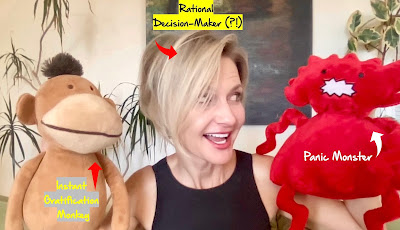I broke up with Disneyland.
 |
| The Last Ride |
After nine years of being an annual pass holder, I let my pass expire today.
When things were good between Disney and me, they were so good!
For years I have loved Disney’s commitment to excellence. It was apparent everywhere. I studied their leadership, took their classes, and visited the California parks an almost embarrassing number of times.
Cliché as it was, Disneyland was my happy place. In my eyes, Disney provided manufactured perfection. It was clean and safe. The cast members were always kind.
Then slowly, gradually, we both changed.
Disney changed their ticketing, pricing, crowd-control, attractions, customer service, and processes. All changes were strategic and well-intended, but not favored by me. Where before I saw magic, I now see dollar signs.
But I changed too. While playfulness is still a priority, my patience has waned. I long for Disneyland as I knew it, and I don’t have an interest in learning to love Disneyland as it is now.
A few weeks ago, my son and I took one last visit while I still had my pass. (I mean, if I was breaking up with Disney, I wanted to do it in person.) We had so much fun. We experienced several Disney magic moments. Twice, I got the giggles so hard -- I thought my face would break. We made great memories.
We noticed all the things that bugged us, too, but still, we focused on the good.
For our last ride, we chose King Arthur’s Carousel, one of the attractions from opening day in 1955. Since watching his daughters ride the merry-go-round at Griffith Park in LA inspired Walt’s vision of Disneyland, this carousel seemed like a perfect selection to end not only our visit but also our era as pass holders.
Late at night, the crowds were light. We were at the tail-end of the line, and most of the outside carousel horses were taken. Since there was no one behind us, I kindly asked the attending cast member if we could wait until the next ride.
“It would make my job easier if you didn’t,” she grumped.
Oof! Further evidence of change, this was not quite the Disney service standard we knew and loved.
I guess I was feeling a bit rebellious; this was my last ride for a while. We stepped to the side and quietly waited anyway. We chose the horses we wanted and enjoyed the ride. We slowly meandered down Main Street and exited the park when it was over.
Thank you, Disneyland. I am grateful for all the memories my family and I have made on your properties. I love the Disney lessons I’ve worked into my career. I’ll still visit every now and then, it’s just not a priority anymore. As Charles Muntz said in the Disney/Pixar movie, Up, “Adventure is out there.” I am off to find my next one.


